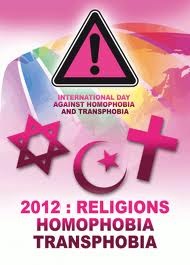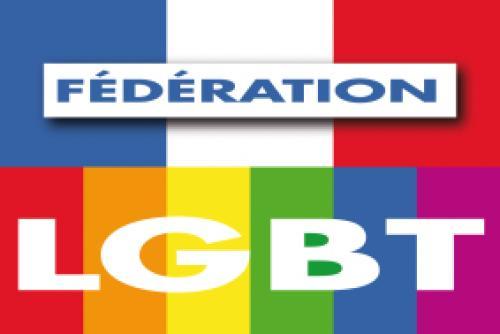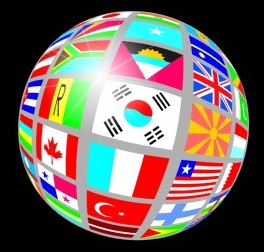Green
Books for an Inclusive Islam
against homophobia, lesbophobia, biphobia, transphobia 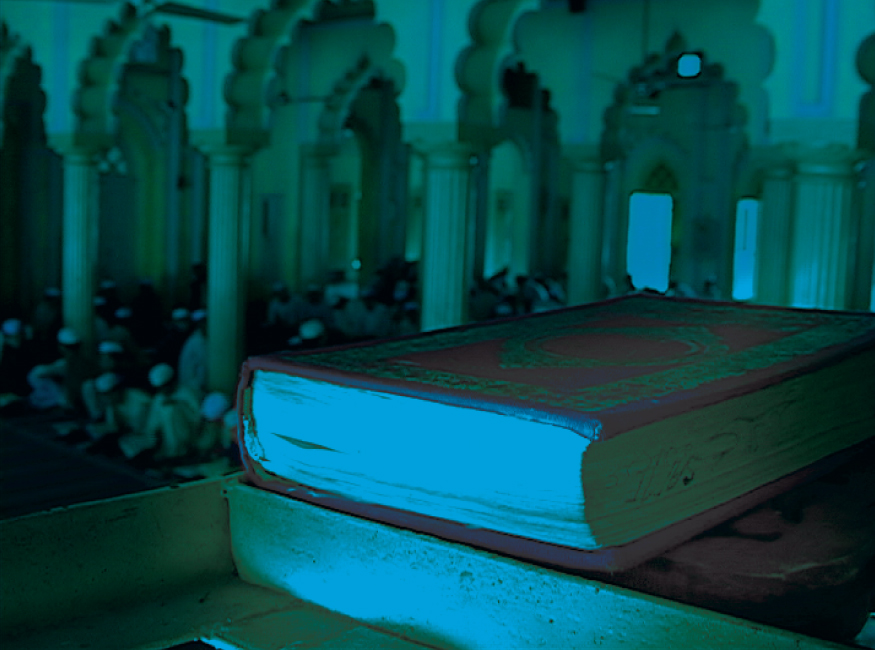 |
||||
 CALEM's INIMuslim network editing | HM2F's publishing Green Books - download (click here) Intellectual supports and Prefaces (click here) ________________________________________________________________________________________ |
||||
________________________________________________________________________________________
GREEN BOOK IN ENGLISH - SEE BELOW
_____________________________________________________________________________________
|
||||
ABDENNUR PRADO - Spain [1]
Bismillahi ar-Rahman ar-Rahim We can analyze the verses
about the people of Lot What arguments can be put
forward to someone who thinks that homosexuality is a sin, something
against
nature, which should be prosecuted and convicted? What can we say to
address
the plight of our Muslim gay brothers and lesbian sisters? What can we
say to
such obvious lack of the most basic feelings and values of Islam, such
as
compassion, respect for others and a sense of right and wrong? It's time to say that this
issue is not a matter of divergent interpretations: it is a basic issue
for the
survival of Islam as a way of life based on transcendent values, rooted
in the
depths of the human heart. In this sense, the Green Book that we
present goes
beyond the foregoing issues, to address the issue from the very heart
of
Islamic spirituality. I thank Allah for giving us the opportunity to participate in this struggle; against the single thought, towards a more spiritual life, stripped of lies, prejudices and invented precepts, toward a life of fulfillment based on the precedence of rahma [3] and the eternal values of Islam. I ask Allah to heal the hearts of those who justify discrimination against homosexuals in the name of Islam. I ask Allah to make them reconsider their views and make love prevail over hate, inclusion over exclusion and acceptance over rejection, insha Allah. BACK TOP PAGE MATTHEW SIMONDS – United States of America [4] “Religion,”
some conservative Muslims say to their
queer brothers and sisters, “is not a fashion that it should
change with the
seasons to suit one’s
‘lifestyle’”; or, “there are
some things in Islam that
cannot be changed, and accepting homosexuality is one of
them.” Some even claim
that Islam has never changed in 1400 years and will remain unchanged
forever.
But a faith without change would be a dead faith, not a living,
breathing one,
for any living thing that fails to change and grow will die. The
challenge facing
Islam in the 21st century is whether it will
continue to grow and
mature and be in the spiritual vanguard as it was when it was first
revealed to
our beloved Prophet Muhammad This
question and others are addressed in this Green
Book which shows the importance for us as Muslims of reclaiming the
spirit of our
foundational texts and using the resources of our Islamic heritage such
as ijtihad, tajdid, and good or
praiseworthy innovations [5] to
make it once more a “middle nation” rather than one
in which it is increasingly
considered by some that “every innovation is
misguidance.” We can, by that
means, open marriage to same-sex couples, and empower women and others
who have
been oppressed. Moreover, although we are called upon by God in the
Qur’an to
reflect upon our differences [6], the
concept of tawheed
also requires of us that we look past our
differences and our diversity
and be cognizant of our common humanity and dignity and our basic
equality in
the face of our Creator. As
the testimonies in this Green Book show, without
reform, many LGBT Muslims will continue to live double lives or have
compartmentalized
lives in which their sexuality is separated from their faith; or they
will leave
their faith altogether or even in some tragic cases commit suicide, not
being
able to bear the heavy burden placed upon them by their families and
their
faith. And yet, no LGBT Muslim should ever feel that they must bear
such a crushing
burden. As the Qur’an says, “On no soul doth Allah place a burden greater
than it
can bear" [7]. Islam
is for all people, including LGBT people. As one young
gay Muslim said in the testimonies in this Green Book,
“He’s my God too.” Ultimately, dogmatic, heterosexual Muslims owe it to themselves to transcend homophobia, lesbophobia, biphobia and transphobia and acquire their own authentic, personal and intimate relationship with the Divine, one that recognizes that their own worth is not based on being better that someone else, but exists because of their being in relationship with God. That is far superior for them than to believe that they are better than others or that their sexuality is better than that of others, for that is the sin of pride, the sin of Shaitan who said, “I am better than him." [8] BACK TOP PAGE Al-Salam
Allikum! First
thing I did is to login to
CALEM website
to read more, and
although that the Arabic pages are not fully completed but I can have
more
answers at the English ones. I am really so proud that there is now a
Islamic
networks for LGBTQ groups, when I read about both operational &
strategic
goals of CALEM I just feel that I am part of it. As
for me, I am LGBTQ Rights
Activist that is mostly working in hidden as you know how the
situations for
LGBTQs community & activists inside Iraq. In many of Arab
communities it is
very difficult to organize around issues of sexuality and gender
identity and
gender expression, and the models from other regions for this kind of
organizing may not make sense in my own contexts, and thus I need think
to
establish my own model that is culturally appropriate with societies of
the Arab
Word. I
used to work on this as hidden
person, not using my real name and actual info especially that it is
still
dangerous here in Iraq comparing within the other Arab countries. All
of my
work in LGBTQ rights are volunteering since that I believe that this is
my
rights and I must living for it not living by it, so that I am
involving in
some of activities most of it are web-based like Facebook, Twitter,
e-mail
groups, etc.
I shall be so interesting to have
this valuable chance to be part of your vision, this will helps me a
lot to
know what are the steps that you walked on it so that you reach the
nowadays.
Yours respectfully, Anas Gilgamesh. BACK TOP PAGE NEVIN
ÖZTOP - Turkey [10] Nevin is offering us a unique perspective on their engagement against homophobia: “Why Regional? Creating the Regional Network Against Homophobia aims to provide a solidarity shelter for all the individuals suffering from hate based on homophobia, transphobia and sexism in and around Turkey. We live in a region popular for its border problems and religious clashes; however when it comes to different kinds of hate forms, there seems to be no borders or clashes. We as the LGBTs in Georgia, Armenia, Azerbaijan, Palestine, Iran, Iraq, Tunisia, Algeria, Israel, Serbia, Lebanon, Bosnia Herzegovina, Croatia, Greece, Turkey, Macedonia, Montenegro and Albania, we do not stand only against heterosexism but also against nationalism and militarism that go hand in hand with it. Our regional network aims to create a ground to stand up for each other as we share similar political patterns and break mental and physical borders that separate us. We want to live with each other; we want to live for each other.” BACK TOP PAGE MARWAN BENSAID - Morocco [11] Homosexuality in the Arab world This is so that among the third world
countries, especially in the
Arab-Muslim world, the subject of homosexuality continues to be a taboo
which
we do not talk about, because some believe that talking about topics
related to
sexuality in general - and homosexuality in particular - is contrary to
decency;
that the issue of homosexuality is set and its legal status, under
Islamic law,
is obvious. They base this on the history of the people of
Lot, which is recounted
in the holy Qur'an. Besides other voices, in order to deny the
existence of
such practices within the society, stressed the fact that homosexuality
is a
Western lifestyle, which is not compatible with Arab societies. To date Arab LGBT community is still far
behind, and we find ourselves
as Arab LGBTs facing a battle against ignorance, first, before even we
can
fight homophobia, since the major part of the Moroccan people still see
homosexuality as a deviance and contrary to human nature, striking
against the
wall all the research and studies showing otherwise. With regard to the marginalization and stress
we feel as a gay, as
result of the rejection by the society, we are also exposed everyday to
various
forms of verbal and physical violence and discrimination in the Street,
the place
of our studies and the workplace... In the Arab-Muslim countries, where all
problems are classified in these
societies vis-à-vis the lawful issue of licit - halal - and illicit - haram
-, Islamic law is seen as the weapon and primary justification for
rejection of
all forms of violence faced by homosexuals, by society, law, family... Furthermore, although there are several schools
of Islamic
jurisprudence, which virtually never agreed on almost all religious
issues, yet
these schools are all agreed on the fact that homosexuality is illicit;
the
only element of jurisprudence on which Muslim scholars diverge, about
this
subject, is how to execute homosexuals who would be found, without any
possible
doubt, engaged in sexual practices of this type. These problems listed above, on which Muslim
scholars publish without
any awareness on their part as to the reality of the facts they
describe, is
equivalent to encouraging the violence by giving carte blanche and
invite
people to commit violence, to increase homophobia, while making licit
these acts
of violence against these marginalized minorities. There is not long ago, the Shiite cleric
Ayatollah al-Sistani, has
published on its website a statement permitting anyone to kill
homosexuals, by
applying Islamic law. There was also this statement saying that
"homosexuals
should be killed in the most brutal way"; a statement which was behind
the
killing of homosexuals in Iraq, since a large number of homosexuals
were
executed without any evidence of crime. One of the survivors reflects the fact that
"the killers entered
the houses; people were taken from the streets and tortured, before
being
killed, to obtain the names of other potential victims." Through internet, television news and social
networks, have circulated
many photos of some of the homosexuals who were killed because of their
homosexuality. As the BBC reports about one of these gay Iraqi, someone
would
have told his brother: "in these times of chaos, it is possible to kill
your gay brother, without incurring any penalty and end this disgrace." The Arab Spring and the fight for LGBT rights! The Arab Spring was a watershed in the fight
against the barrier of
silence and repression, which was supported by the Arab peoples, since
it is
now enjoying a much greater freedom of expression about our claims in
all areas
that relate to our society. These revolutions have worn slogans of
freedom and
rejection of repression, oppression and marginalization, and they have
fulfilled their goals by breaking this cycle of tyranny that lasted for
years
... And as long as homosexuals will be an integral part of this
society, things
will change and we will continue to strive for recognition, justice and
peace.
This movement appears so clear to claim the rights of homosexuals,
including on
Arab general websites and on social networks in particular... After this came the Tunisian magazine GAYDAY,
who was the first Tunisian
e-magazine gay oriented. It was a great success and many Arab media
have
referred to it as an excellent initiative. Other magazines have been
out, like
our magazine "Aswat": an electronic magazine produced by young
Moroccans. This magazine has a great success, and its first issue in
April 2012
has been downloaded more than 22,000 times. This magazine has a wide
audience
and has followers all over the Arab world... In addition, such groups
and
organizations actively defend those rights, after the Arab spring, to
get rights
for all groups, without distinction. Homophobia in the Arab world! What is the
solution? To date, Arab societies still consider
homosexuality superficially, in terms
of sexual practices only; a perspective that does not benefit from the
full
breadth of culture or sex education. Everything they represent is the
relationship between a man and a woman, and everything that comes out
of this
configuration is similar, according to them, to a practice against
nature...
All of this drives us back to our fight against homophobia. First, we focus on clarifying the definition and representation of these homosexual tendencies, despite these prejudices implanted by an Arab conservative culture. When people will understand the exact meaning of sexual orientation, only then we will be able to convince people of the legitimacy of our claims, which have nothing to do with the sexual histories about the people of Lot. BACK TOP PAGE LAURE RODRIGUEZ QUIROGA - Espagne [12] Construction
of lesbian identity, especially in the
case of Muslim women, is a long and painful process. Sometimes it never
happens. For a woman to consider herself lesbian the first step to
follow is
that of awareness of the category "lesbian" to be able to identify to.
There is a whole inner struggle between tradition and the deeper
feelings that
erupt in a patriarchal society built from heterosexual experience. The
majority of lesbians Muslim women question their
identity during their lives. First question is: "Who am I?" Which is
in general responds according to the gaze of others and which is
closely linked
to the second question: "How to present myself to others?" It's a
constant struggle between identifications felt by the woman and own
identifications imposed by the community. The
majority of women interviewed during my research
feel identified as lesbians. That is to say they feel emotionally and
sexually
attracted to other women and most have taken the step towards the
interpretation of this attraction as that of lesbian identity. Most, however, keeps
this secret to the outside world. Some
believe that homosexuality is not dependent on
them and that their sexual identity is linked to the essence of their
own
existence. For this, lesbo-erotic attractions are seen as inevitable.
However,
others maintain that their feelings and desires are the work of the Shaytaan and struggle not to fall into
the temptation to commit an illegal and perverse act. All
recounted painful stories about the denial of
their homosexual orientation and the difficulties to identify their own
feelings due to the suffering that implies the choice to live as a
lesbian. In
general, Muslim women assume they have not chosen their sexual
orientation, but
if the opportunity to live or not in this orientation. Take
lesbian identity is in most cases a long process
that does not always coincide with the beginning of physical contacts
or the
attraction of the same sex. For that to happen this self-identification
as
lesbian or bisexual must be taken into account various factors: access
to
information on LGBT, preconceptions about homosexuality, ability to
build an
identity consistent with the experience, etc. There is a widespread feeling of guilt, fear or anxiety when they begin to assume their sexual orientation. There is especially a strong psychological impact on time to act out their sexual identity because they are afraid of failing to honor their family and do something contrary to Islam. BACK TOP PAGE MUBEEN AL-RASHEEDO
- Azaannia
[13] The
Green book about Coming-out
and Tawhid
is a very engaging book in that it is trying to deal with many issues
at the
same time. It is trying to deal with the concept of Tawhid which by any
measure
is probably larger than the universe as we know it in our limited
ignorance. At
the same time it is trying to engage with coming-out and dealing with
the
acceptance of the expression of sexuality variation. I am making the
assumption
that inherent in Creation, sexuality variation already exists, but that
it’s
the expression that becomes a source of discriminating between the
powerful
core and the purposefully marginal in society. And finally the last
part of the
book deals with a colourful mosaic of social narratives of individual
people in
very different circumstances that have to engage firstly with sexual
disparity
and then sexual similarity. Language of words cannot adequately
describe that
pain and yet at the same time, a blessed and conscious way of walking
the road
to the very Divine Source of Compassion that we abandoned at birth. My
first engagement with the book had me thinking of my own journey and
one in
which coming out was not an option. And what originally started off as
an
engulfing neurosis of fear of not wanting anyone to know, took a very
different
direction. Instead of seeking the affirmation of my earthly difference
from
other people, without fully understanding what it all meant for me; I
went
through my journey of coming out to myself first. Earthly difference
very
quickly became spiritual indifference. In
“The Book of Sufi Healing”
by Sheikh
Hakim Moinuddin Chisti [14], the
author starts off the last chapter - titled: ‘The
Infallible Remedy’ - with a quote by Sheikh Bayazid
Bistami
(RA): “Once I saw the Most High God in a
dream. He asked me, “Bayazid, what do you
want?” I replied, “I want what You
want.” The Most High God was pleased and said, “I am yours and you are
Mine.” So
I
guess self-definition and coming-out is as overrated to sexuality as
snow is to
Europe. It becomes irrelevant in the bigger scheme of things, in the
larger
creation similarity, and difference is of no consequence. Any
difference, be it
rank of any kind is not the differentiating factor. In Verse 31 of
Surah Ali-‘Imran (the
family of Mary) Allah
reminds us, yet again, that Forgiveness and Mercy are for all those
that love
and align themselves with the very source from which we all originate :
Divine
Compassion. It is this divine revelation, complimented by the words of
Sheikh
Bayazid Bistami[15], that requests
of
us to see our troubles - of this earthly existence - as distraction and
unnecessary detail to our ultimate journey, i.e. Being at one with that
which
we are a part off. There
are a few assumptions in that last statement. It assumes that we are
comfortable with ourselves; that we have forgiven ourselves of our
transgressions and transgressors and are ready to move on. But we all
know that
is mostly true in a utopian existence. So we all carry with us a
saboteur, an
inner saboteur that is with us most of the time. This saboteur is
afraid of
self empowerment and most times (in varying degrees) can be self
destructive,
or have the need to undermine and exclude others. In my humble opinion,
a
saboteur struggles with (self) restraint. So
how
do we go on track and walk the journey of our “spiritual
DNA”, which will take
us back to that uncreated Immensity which we have abandoned when we
chose to
enter this physical existence? In his book “Futuh Al-Ghaib
– The Revelation in
the Unseen” by Ghaus-Al-Azam Sheikh Muhiuddin Abdul Qadir
Gilani[16] he speaks of a roadmap
that is
essentially instructed by our spiritual DNA. He speaks of three stages,
Fana, Baqa and Liqa.
Fana[17]
is
the total subjugation, or rather the
prayerful surrender of our whole being to Allah. In the language of the
Quran, Fana is referred to as Istiqama. If we could thrive in this,
especially when we are blessed with trials and tribulations, then we
could
experience the state of Baqa. Baqa
is when we operate with restraint:
not sabotaging ourselves, violating the rights of others and disturbing
a
balance that Allah has created in all social forms with uncreated Love.
Instead
the intoxication of Baqa is about
operating from a space of Allah consciousness, no fear nor sorrow and
ultimately from a place of self-realisation and alignment with our
Divine
Source. This can only but lead to the benefit of the people around you,
humanity and to the rest of creation. In this way the Quran is
extremely astute
on the discourses of socio-political rights (class, race, gender etc)
and even
ecological issues, beyond a legal or constitutional framework. Liqa
is the final part of this journey,
where belief, authenticity and devotion then become irrelevant. Instead
the
experience of engaging with Allah becomes tangible. In such a
condition, the
experiences of our inner wounded child, societal distortions and
judgement
becomes totally immaterial to our existence. This all becomes a
distraction
from the one true secret of all of creation and uncreation: just pure
unadulterated Divine Love. So
how
and where do we get this spiritual map? I believe that the answer lies
in Sura
Baqara V.238, where Allah affectionately reminds us: ”Guard
the prayers,
especially the middle prayer...”. In his book, “The
Secrets of Secrets”, Sheikh Muhiuddin
Abd Al-Qadir Al-Jilani[18] tells
us that the actual salat[19] that
we
daily offer to Allah is the worship of the material self. There are
many
movements and actions involving different parts of our body with the
recitation
of Divine Revelation involving our senses. Hence the word
‘prayers’ in that
Surah is in the plural, as prayer is the engagement of different parts
of our
physical existence. But the middle prayer is about prayer of the heart
which is
ultimately where the true mosque is built. The congregation is our
inner
faculties, remembering and meditating on the Names and the Unity of
Allah. The
leader of this prayer is our irresistible wish to align ourselves to
our
natural course. And finally the Qiblah
[20] of this prayer is towards
the
oneness of Allah. Rumi’s[21]
challenge to
all of us then is his adage: ”Are
you just going to admire the jug or are you actually going to drink the
water?” Here
is a final argument to consider, Salih of
Qazwin [22] once said: ”Knock and the door will
open.” Rabi’a Al-Basri
[23] responded by saying that the door was never
closed in the first place. Rumi beautifully closes this triangular
engagement
about the lover and the Beloved when he exclaimed: ”I knocked
and the door
opened, but I found that I had been knocking from the inside.” LOUIS-GEORGE
TIN - France [24]
Most
religions
want a world of love, peace and serenity. Yet everywhere there are men
who,
under the guise of religion, spread hatred, violence and tumult. Most
religions
invite for dialogue, harmony and justice. And yet men, everywhere, in
the name
of God, impose ban, exclusion and brutality. Most religions invites to
meditation, sharing and openness. Yet everywhere there are
"religious" who preach in favor of invective, of selfishness and
rejection. These
men do not speak of God: they speak of a fictional character, full of
energy,
rage and malice, a kind of superhuman psychopath, they have created in
their
image. A character who looks more like what they would like to be more
than
what could be the divinity itself. It
is
found in Islam, as elsewhere. People who know better than Allah what
Allah
thinks. People who in the name of respect for their God, insult the men
at any
time. People talking about that we should not judge, but who condemn
every day,
and kill. Gays,
lesbians, bi and trans are victims of these fanatics, of course. On the
occasion of the World Day against Homophobia and Transphobia, I can
only see,
say and repeat it. And I can only support CALEM, this confederation
that unites
you, and that strengthens us. But
religions, it must be remembered, are also victims of these fanatics,
who
tarnish and debase the divine message and the world of men. Victims of
these
people who live more in the dogma more than faith, in the certainty
more than
piety, in the belief more than spirituality. You
who are Muslims, you who are simultaneously homosexuals, you call to
fight
against homophobia. You call to fight against Islamophobia, too, that
plagues
Western societies. You call to wear the colors of hope, courage and
dignity.
You are called to spread this message of peace, which is the essence of
Islam,
which is also the essence of LGBT activism. In other words, you are called to become the prophets of that time... BACK TOP PAGE ARUS PELANGI - Indonésie
[25] Islam is an important factor in the struggle for our rights; Arus Pelangi does not focus in particular on religion. Rather we focus on human rights issues. I am not Muslim myself, though my colleagues and my life partner are. We are in contact with several progressive Muslim scholars on the issue of homosexuality and gender identity. Some of their writings can be found on our website. Sometimes we invite them to speak in public discussions to highlight the diversity in interpretations of the Quran. Indonesia is often seen as a possible shining example of how Islam and democracy can work together. Sadly, the reality is that we are far from being a gay paradise. We are living under constant threat of attacks by hard-line Muslim groups, while law enforcement hardly makes any effort to stop them. Despite the absence of criminal laws on homosexuality, the government has until now refused to acknowledge the existence of LGBTIs as a legitimate minority with the same rights as other citizens. That is our biggest challenge. BACK TOP PAGE AMINA WADUD -
United States of Amercia [26] “I had a retreat with queer Muslims
and their
allies. Really the
sisters and brothers
there put more heart and soul into our worship together, I thought,
this is
what community is all about”.
BACK TOP
PAGE _________________________________________ REFERENCES
1
Former
president
of Junta islamica
catalan (Spanish Islamic council),
which organizes a conference about Islamic feminism each year; he says
that
Islam and homosexuality are not incompatible; President of the
International
Congress on Islamic Feminism - http://feminismeislamic.org/cast/.
2
May
peace be upon him. 3 “Mercy” 4 Ph.D. in Near Eastern Studies,
5 bid’ah hasanah or bid’ah
mahmudah. 6 Qur’an:
49.13 7 Qur’an:
2:286 8 Qur’an:
2.30
11
Marwan is founder of an LGBT Moroccan organization and editor
in
chief of the gay magazine ASWAT ("the Voices") -
http://aswatmagazine.blogspot.fr/
13 Imaginary country (Azaan - the call - and Nia - the intention) on the other side of the world, where our special contributor is a fifteen years human rights activist.
14 Published by Inner
Traditions International, Vermont, 1991. Also known as Gharīb Nawāz "Benefactor of the Poor" (غریب نواز), he was
born in 1141 and died in 1230 CE. He is the most famous Sufi
saint
of the Chishti Order of the Indian Subcontinent 15 Tayfur
Abu Yazid al-Bustami (804-874) was a famous Persian sufí. 16 Islamic Book Service, New Delhi, 1998 17 Annihilation
of ego. 18 Born in Iran, Mazandaran, in 1083 and
died in 1166; he occupies
place in history of sufism. 19 Prayer. 20 Direction of Mecca towards which Muslims turn
their face to pray five
times a day. 21 Famous sufi poet (Balk, 1207 - Konya, 1273)
that profoundly influenced
the representation of the islamic mysticism. 22 Persian sufi. 23 Saint sufi woman (717–801)
from Basra, Iraq. 24 Founder of the IDAHO, International Day Against Homophobia, Transphobia - http://www.idahofrance.org/ 25 LGBT Indonisian Federation - http://www.aruspelangi.or.id/ ;
statement collected
thanks to the organization MOI
(homosexual Muslims in Italy)
- http://www.ilgrandecolibri.com/p/moi-musulmani-omosessuali-in-italia.html 26 Amina WADUD, the famous
university professor,
struggling for an Islamic feminism, wrote: “The oppression of
sexes is (...) opposed
to Islam and it is for those who are aware of the complexity of human
existence
to create a living reality that challenges the oppression of gender or
any
other form of oppression based on race, class, ethnicity or sexual
orientation”
- more information at http://en.wikipedia.org/wiki/Amina_Wadud |
||||
|
|
||||
|
_____________________________________________________ CALEM 2012 main conference is sustained by the European Council CALEM received the 2012 Pierre Guénin price* against homophobia. *A price given by SOS homophobia |
||||
E-mail: calem.conference.2010@gmail.com
BACK TOP PAGE



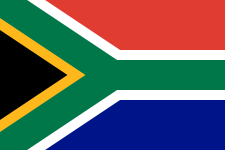

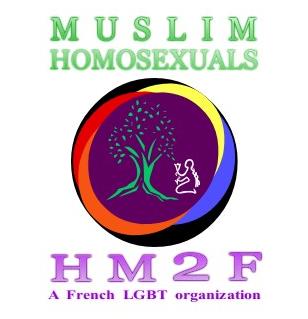

 [2]
[2]
